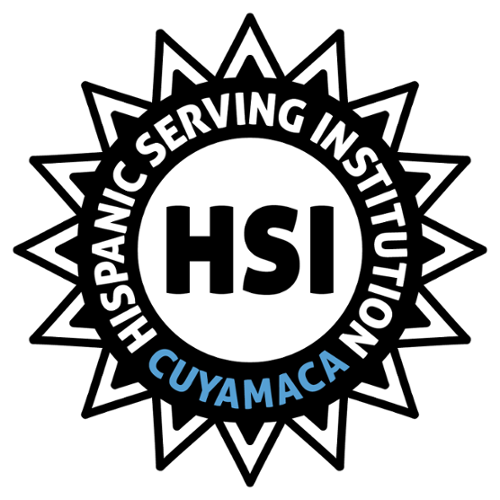Contact
Jesús Miranda, M.S.
Associate Dean of Student Equity and Engagement
Email: Jesus.Miranda@gcccd.edu
Phone: (619) 660-4007
Advancing Racial Equity and Social Justice
- The establishment of U.S. higher education is deeply rooted in racism/white supremacy, the vestiges of which remain palatable;
- The functioning of U.S. higher education is intricately linked to imperialistic and capitalistic efforts that fuel the intersections of race, property, and oppression; and
- U.S. higher education institutions serve as venues through which formal knowledge production rooted in racism/white supremacy is generated.
Because of these harsh realities about higher education, it is critical to identify and employ an effective guiding lens to move us beyond racism/white supremacy. Therefore, the Racial Equity and Social Justice Task Force will employ the following tenets of Critical Race Theory (CRT) in education to effectively identify and interrogate such spaces, practices, and systems within Cuyamaca College (Ledesma & Calderón, 2015; Howard & Navarro, 2016):
- Centrality of race and racism: Within education, we must centralize race and racism, including intersections with other forms of subordination such as gender, class, and citizenship.
- Challenging the dominant perspective: We must work to challenge dominant narratives and re-center marginalized perspectives.
- Commitment to social justice: Our efforts must always be motivated by a social justice agenda.
- Valuing experiential knowledge: CRT centers the narratives of people of color when attempting to understand social inequality. This is based on the oral traditions of many indigenous communities of color around the world.
- Being interdisciplinary: The world is multidimensional, and similarly, research about the world should reflect multiple perspectives.
- Cuyamaca College President Dr. Julianna Barnes
- Bri Hays (Sr. Dean IESE)
- Jesús Miranda (Associate Dean of Student Equity & Engagement)
- Miriam Simpson (SSE Coordinator/Chair of Physics)
- Moriah Gonzalez-Meeks (Equity Advisory/Chair of Humanities and History)
- Dr. Tania Jabour (SLO Coordinator/English)
- Dr. Ticey Hosley (SSPR Coordinator/Articulation Officer)
- Katie Cabral (Campus Researcher)
- Rafael Ayala (Campus Researcher)
- Jane Lytle (Admin Support)
- Madison Harding (Tech support)
- Dr. Jessica Robinson (Vice President Student Services)
- Christianne Penunuri (Director of College & Community Relations)
- Nicole Salgado (Interim Vice President Administrative Services)
- Nicole Jones (Dean of Counseling Services)
- Dr. Raquel Jacob-Almeida (Chair of Social Sciences)
- Manuel Mancillas-Gomez (Academic Senate President)
- Agustín Orozco (Associate Dean of Student Services)
- Greg Vega (Director of Admissions & Records)
- Dr. Marissa Salazar (Psychology)
- Dr. Lauren Halstead (Chair of English)
- Dr. Lauren Vaknin (Dean of Student Affairs)
- Karla Gutierrez (Chair of Languages)
- Michelle Campuzano (Counseling Faculty)
- Alicia Muñoz (Dean of Arts, Humanities, and Social Sciences)
- Dr. John Escobedo (Title V Director)
- Martha Galvan (Financial Aid)
- April Holman (VPSS Admin Support)
- Angela Tilley-Ruiz (Career Services)
Aronson, B., & Laughter, J. (2016). The theory and practice of culturally relevant education: A synthesis of research across content areas. Review of Educational Research, 86(1), 163- 206.
Howard, T. C., & Navarro, O. (2016). Critical race theory 20 years later: Where do we go from here?. Urban Education, 51(3), 253-273.
Patton, L. D. (2016). Disrupting postsecondary prose: Toward a critical race theory of higher education. Urban Education, 51(3), 315-342.
Contact
Jesús Miranda, M.S.
Associate Dean of Student Equity and Engagement
Email: Jesus.Miranda@gcccd.edu
Phone: (619) 660-4007






